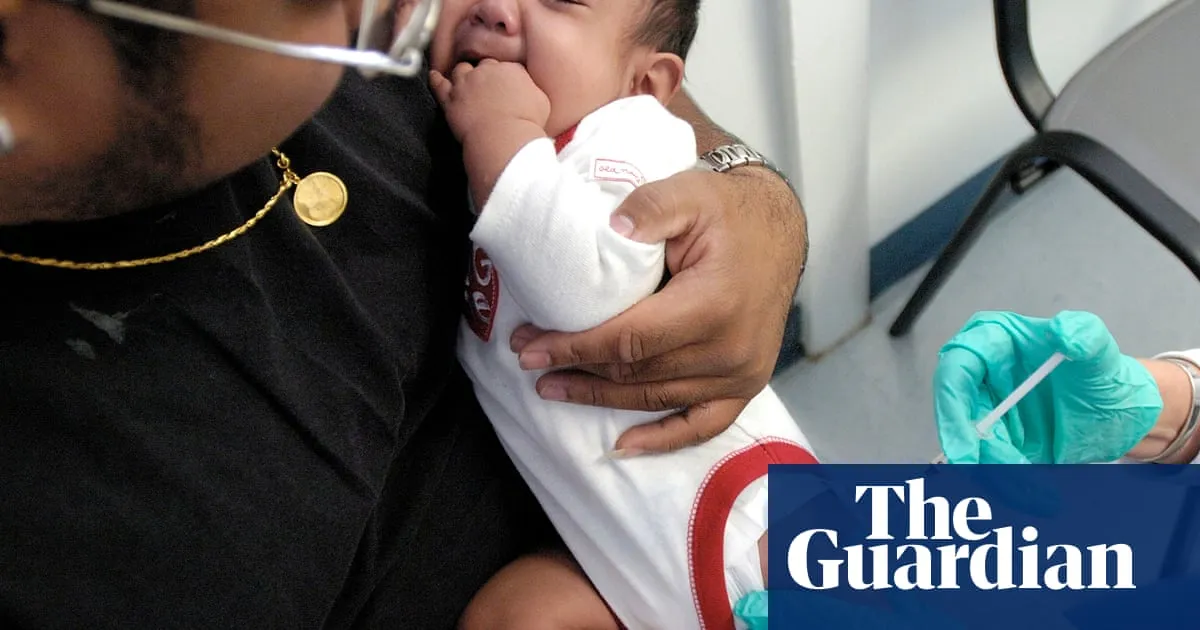
Recent findings from the US Centers for Disease Control and Prevention (CDC) highlight a remarkable reduction in RSV hospitalizations for infants, attributed to the introduction of new vaccines and treatments. This past winter marked the first RSV season with the widespread availability of a vaccine administered during pregnancy and a monoclonal antibody treatment given to infants within the first eight months of life to prevent respiratory syncytial virus (RSV). As the leading cause of hospitalization among infants in the United States, RSV poses the greatest risk to newborns under two months of age.
Data comparing this year's RSV season to those from 2018 to 2020—prior to the onset of the Covid pandemic—indicates a dramatic decline in hospitalizations among babies under seven months old. Depending on the source, hospitalizations decreased by as much as 56%. In particular, the hospitalization rate for newborns dropped by an astonishing 71%. Emergency physician Heather Auerbach observed this trend firsthand, stating, “There was definitely less RSV this year compared to the last two to three years.”
Moreover, the young children who did require emergency care showed less severe symptoms this year. Auerbach noted, “I think I saw fewer critically ill kids from it this year than I have the last couple of years.” She emphasized that even when children were hospitalized, they often required less intensive care, stating, “There's a difference between just needing some suction and oxygen versus needing to be on high flow oxygen or BiPap.”
Auerbach shared a personal experience regarding the impact of RSV on her family, revealing that her son had been hospitalized with RSV at just three weeks old in January 2020. Despite being born full-term and healthy, he exhibited severe respiratory distress, a situation that could have potentially been mitigated with the new RSV vaccines. “I genuinely think that could have saved him a hospitalization,” Auerbach said, reflecting on the profound anxiety that accompanies an RSV hospitalization.
For many parents, the experience of a child’s hospitalization due to RSV is fraught with fear and uncertainty. Auerbach explained, “Kids get very, very sick from this without vaccines and preventative treatments, and preventing any of that is a major breakthrough.” She also pondered whether the vaccines could prevent long-term complications, as her son was diagnosed with asthma months after his RSV illness. “There’s no guarantee that he may not have ended up with asthma regardless. But do I think he would have had it at six months? No,” she stated.
According to the CDC’s tracking tool, RSV-Net, the peak hospitalization rates for children under one year old this year were about half of those recorded during the height of the 2023-24 season and one-third of the rates from the previous season. Notably, while hospitalizations among infants dropped significantly, older children aged 1-17 experienced higher rates of RSV hospitalizations this winter compared to the previous winter. “Higher RSV hospitalization rates in older children—who are not eligible for RSV prevention products—suggest this season may have been more severe than previous seasons,” remarked Jasmine Reed, a CDC spokesperson.
Despite the increase in RSV cases among older children, the marked decline in hospitalization among infants indicates that the new vaccines and treatments are effective. The CDC study found that babies under eight months old experienced a 43% decrease in RSV hospitalizations, with a more significant drop to 56% when excluding data from Houston, which had an early RSV season before the widespread use of preventative measures.
Newborns are particularly vulnerable to RSV, and the monoclonal antibody treatment, nirsevimab, is now available for babies under eight months either at birth during RSV season or at the onset of winter. Additionally, pregnant individuals can receive the Pfizer vaccine, Abrysvo, during their third trimester, which provides vital protection to newborns for several months. Reed emphasized the importance of increasing vaccine uptake, stating, “Increased use of RSV prevention products during future seasons might lead to even larger reductions in RSV hospitalizations among infants.”
As the data continues to emerge, it is clear that these new vaccines and treatments represent a critical advancement in protecting infants from the serious health risks associated with RSV.